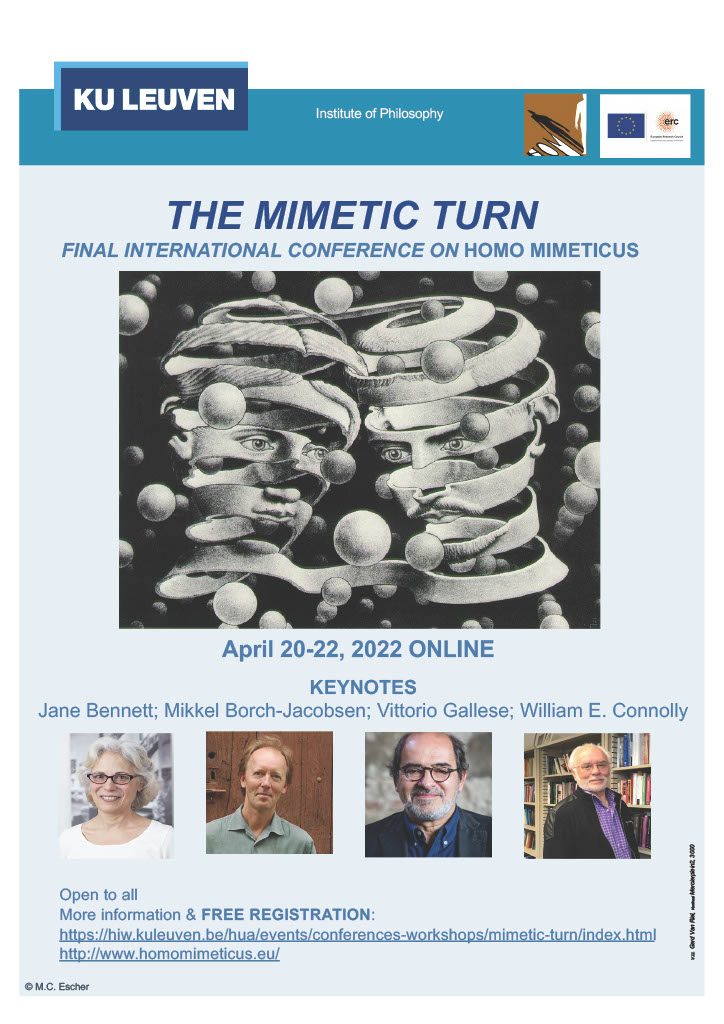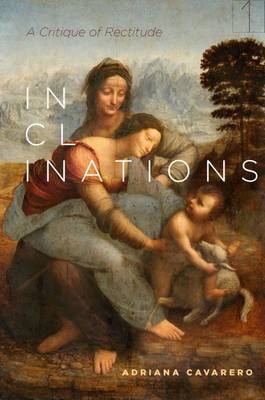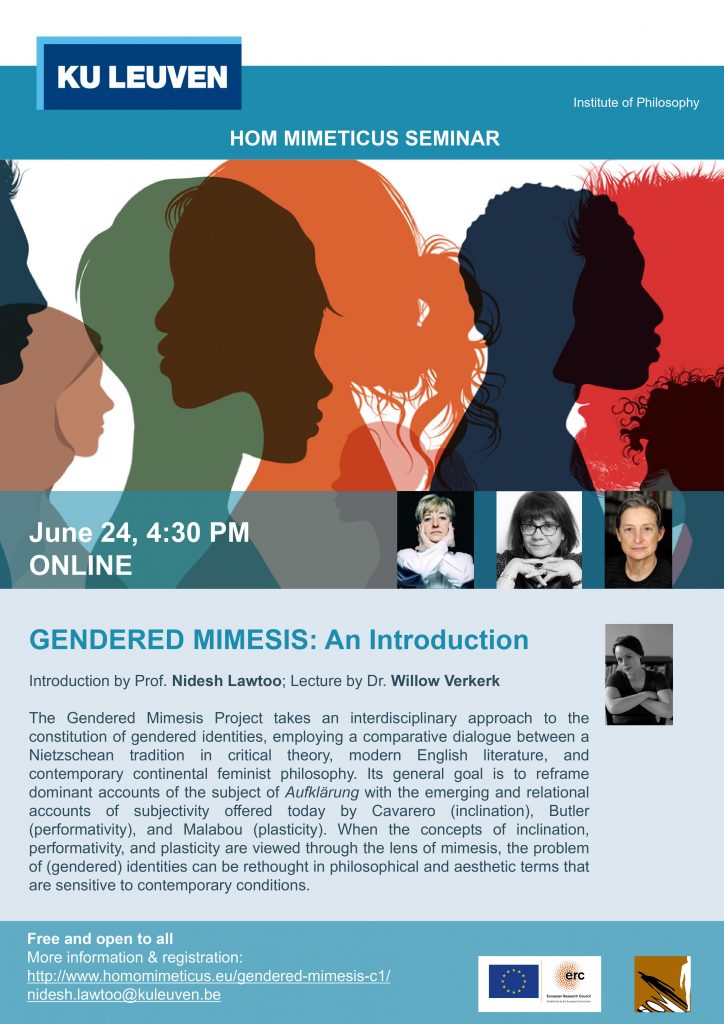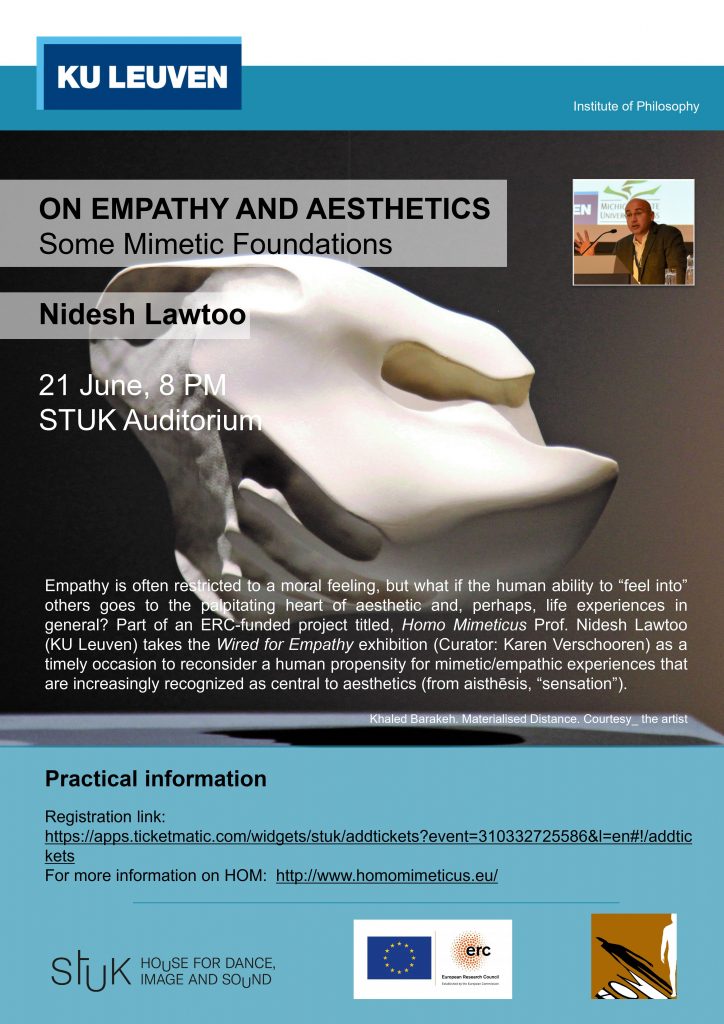
The ERC-funded project Homo Mimeticus: Theory and Criticism (HOM) hosted by the Institute of Philosophy and the Faculty of Arts at KU Leuven, Belgium, is pleased to announce its final international conference titled The Mimetic Turn (April 20-22, 2022; ONLINE). Keynotes and Invited Speakers include Mikkel Borch-Jacobsen, Vittorio Gallese, Jane Bennett, William Connolly, Henry Staten, among other internationally renowned theorists and critics. Recordings here




